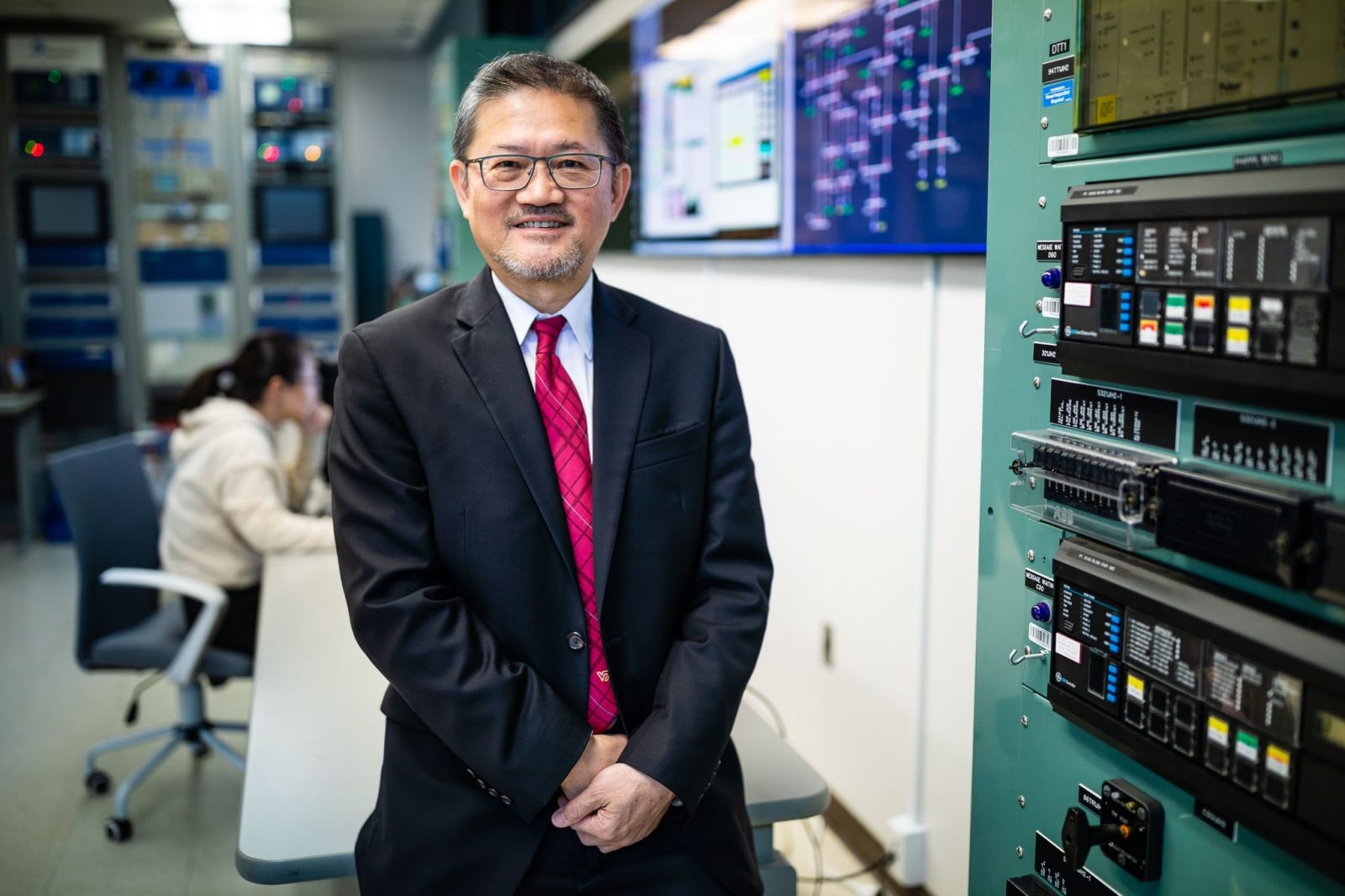New Faculty Member: Chen-Ching Liu
Shaping the power grid of the future
May 20, 2019

- Joined ECE January 2018 as American Electric Power Professor
- Boeing Distinguished Professor of Electrical Engineering, Washington State University, 2011-2017
- Professor, University College Dublin, Ireland, 2008-2011
- Palmer Chair Professor, Iowa State University, 2006-2008
- Professor & associate dean of engineering,
- University of Washington, Seattle, 2000-2005
- Power and Energy Society Outstanding Power Engineering Educator Award, 2004
- IEEE Third Millennium Medal, 2000
- IEEE Fellow, 1994
- Ph.D., electrical engineering, University of California, Berkeley, 1983
- M.S. electrical engineering, National Taiwan University, Taiwan, 1978
- B.S., electrical engineering, National Taiwan University, Taiwan, 1976
Already a national and international leader in power grid research and education, Virginia Tech’s power systems program is positioning itself to continue the tradition of global leadership.
Chen-Ching Liu, the American Electric Power Professor, took the helm of the Power and Energy Center in January 2018. With his fellow researchers, Liu has been cultivating industry relationships and cross-disciplinary partnerships to establish a new vision.
“We are mobilizing the program to shape the future power grid, or as we’ve been calling it, the cybergrid,” said Liu.
The cybergrid is supported by four main components: measurement, power electronics, cybersecurity, and decentralization. Liu’s group is building a testbed that integrates these components along with their associated technologies.
Each of the components will have to work independently and collaboratively. “As we figure out better control resources and strategies for the different components, we will be developing their ability to work with each other and bring the whole system together,” explained Liu.
“These four components together represent cybergrid challenges with enough work to keep all of us busy for many years,” said Liu.
Detecting cyber intrusions of the power grid
Liu’s team is using the testbed to investigate how cyber intrusions like falsified control commands can be detected and stopped. In this project, the researchers use relation-based models and algorithms to identify collaborative attacks. They are also developing techniques to defend the supervisory control system against falsified measurements that use the power grid’s communication systems.
Restoring critical services with distributed energy
With funding from the U.S. Department of Energy and the Pacific Northwest National Laboratory, Liu and his team are exploring the resiliency of power distribution systems in the event of a natural disaster or catastrophe.
They are focusing on restoring critical services after a catastrophic outage where the utility system is severely damaged. In this situation, microgrids and distributed energy sources would be tapped to serve the critical load.
“We have proposed a new metric for resiliency based on the total megawatt-hours that the system is able to provide to critical services during system restoration,” said Liu.
With the explosion of potential dangers and opportunities of the cyber grid, the solutions to these challenges will be what ensures the reliable power system of the future.


